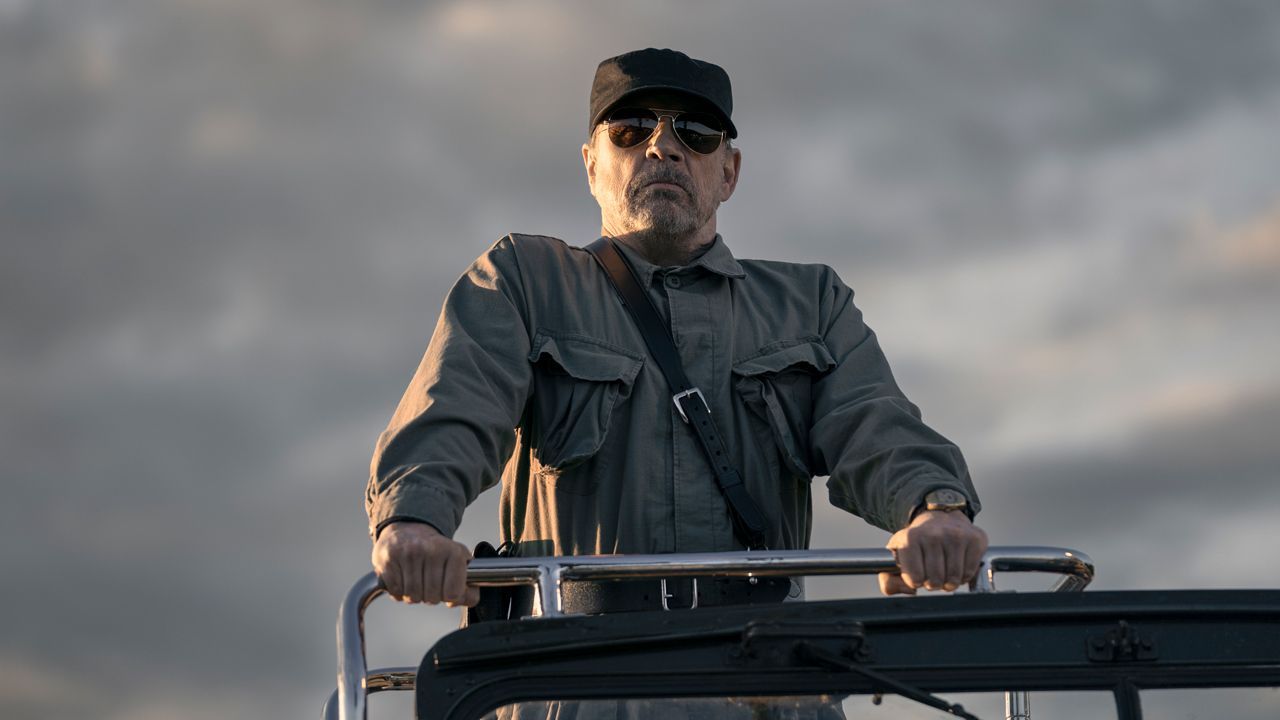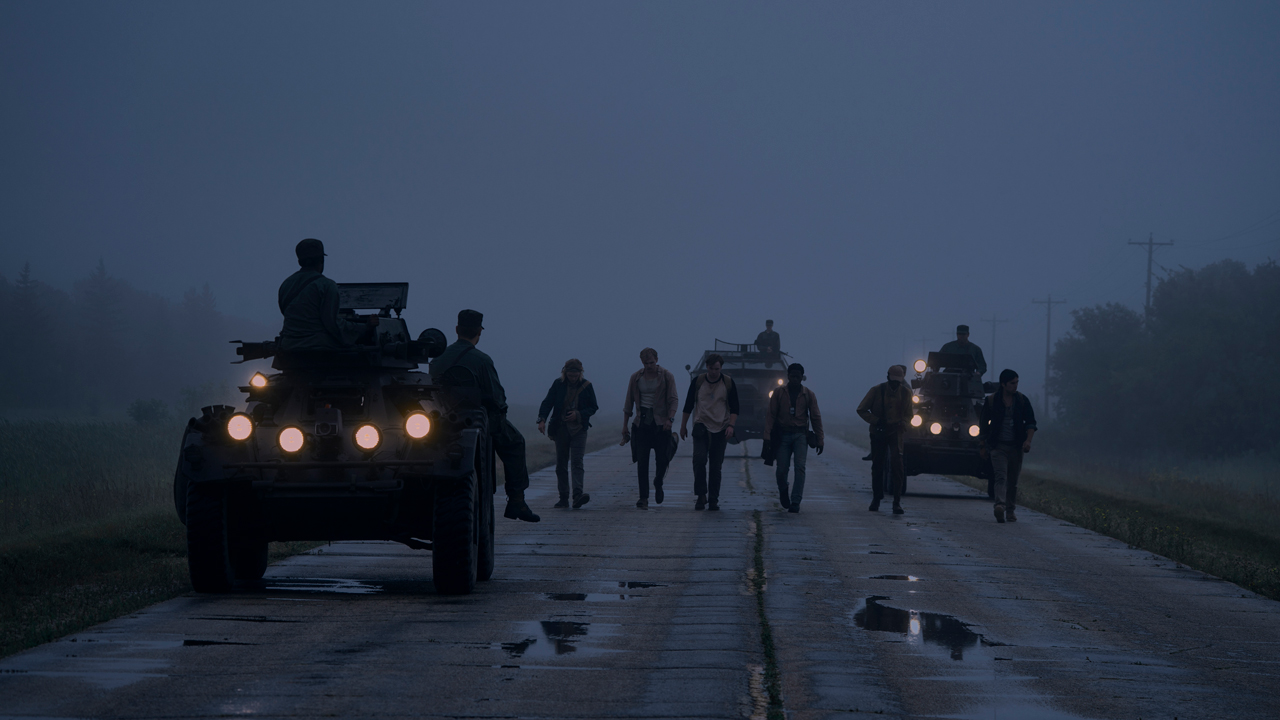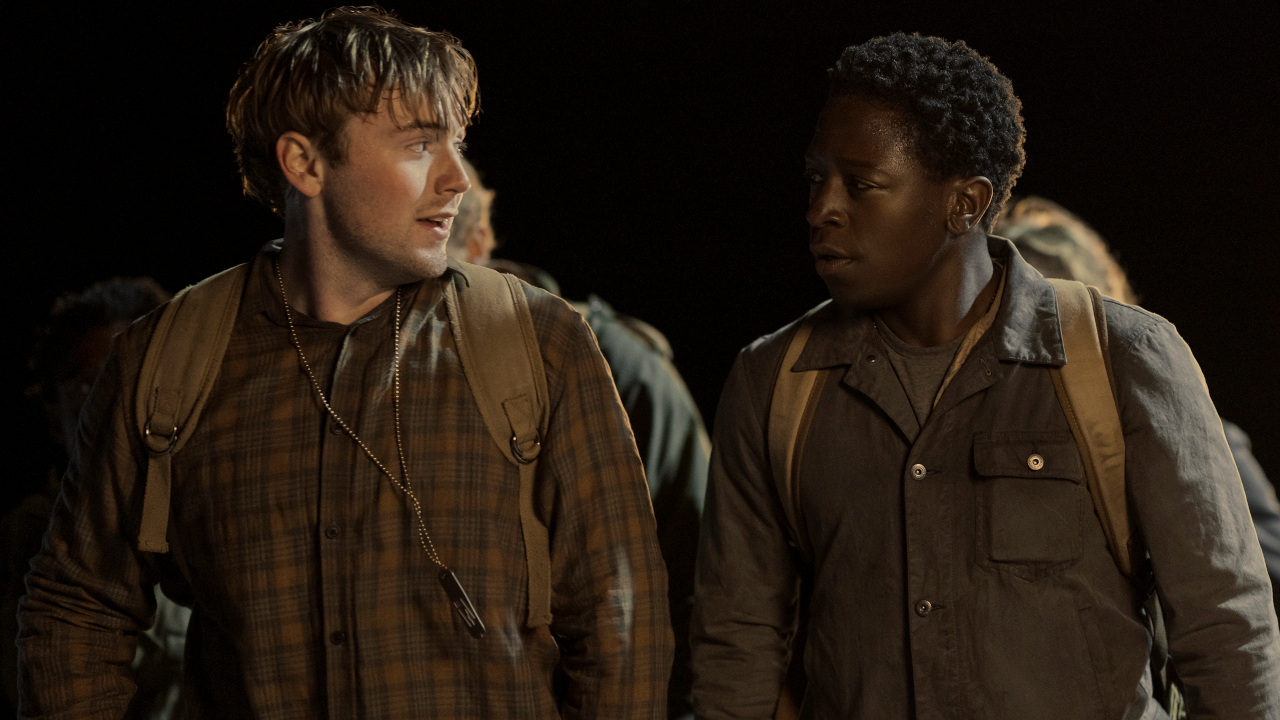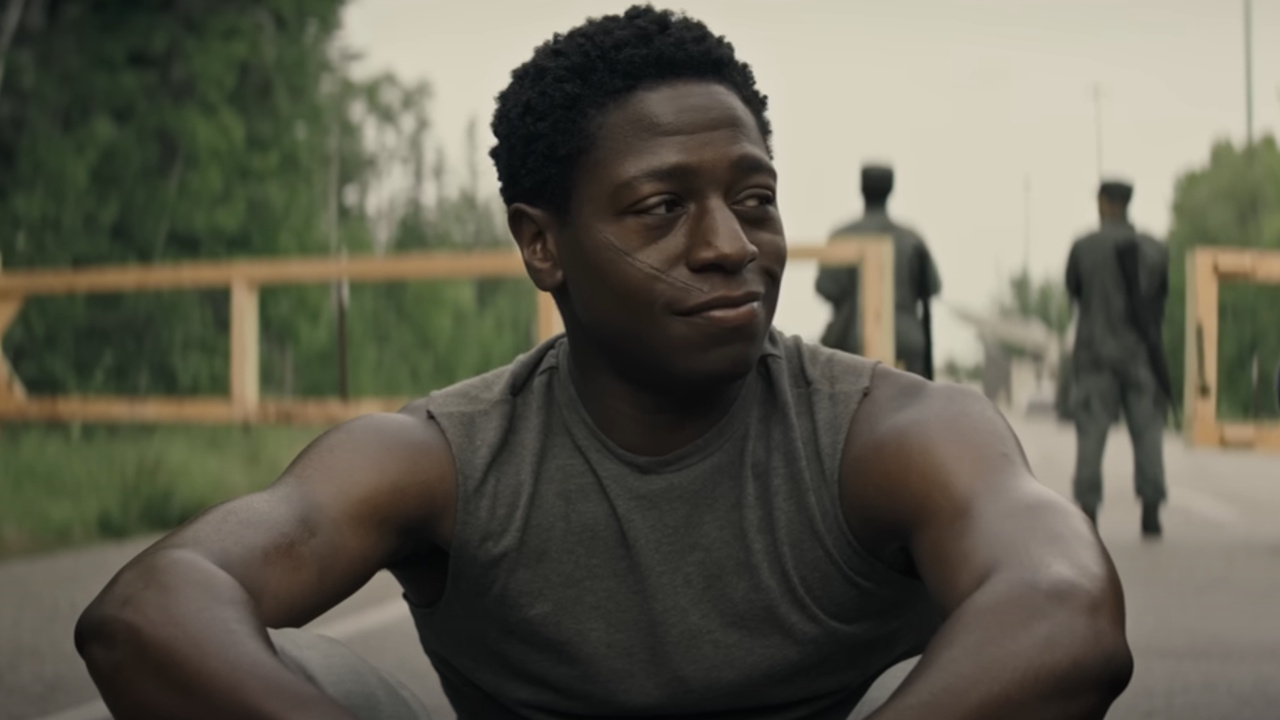
Be warned: This article reveals major plot details from the movie The Long Walk. If you haven’t watched it yet, you might want to stop reading now to avoid spoilers!
Happy Thanksgiving, Stephen King fans! With Turkey Day here, the year is quickly coming to a close. But 2025 is already shaping up to be great for King fans, with plenty of new content. New episodes of IT: Welcome to Derry are still being released weekly on HBO Max, and the latest one features a fantastic introduction to Bill Skarsgård as Pennywise. Plus, The Long Walk arrived on 4K UHD and Blu-ray this past Tuesday – it’s currently only available as a beautiful Steelbook edition and is a perfect addition to any Stephen King collection.
The latest release of the Francis Lawrence-directed film isn’t just its arrival on Blu-ray and DVD after playing in theaters and being available digitally – it also includes a brand new ending that hasn’t been seen before. I recently watched this alternate conclusion myself, and I’ll be dedicating this week’s column to explaining why I’m surprised and pleased it wasn’t the one used in the original theatrical release. There’s a lot to unpack, so let’s get started!

What Happens In The Long Walk’s Alternate Ending
As a big fan of Long Walk, I was really excited to hear about an alternate ending being included on the Blu-ray release. I honestly thought it would be closer to the book’s ending – where Ray does win, but is so broken down by the experience that he just keeps going, almost like he can’t stop. Turns out, I was completely wrong! The alternate ending on the 4K disc is actually a different take on how things could have played out from the ending we all saw in theaters.
There’s a really brutal scene included on the special features that stuck with me. It shows Ray and Peter as the last two guys still walking in The Long Walk, and it’s absolutely pouring rain while huge crowds watch. Just like in the movie, Peter stops, getting a second warning, and Ray gets pushed to keep going. When Peter starts walking again, he doesn’t realize Ray has stopped. Then, soldiers shoot Ray in the chest, and it’s shockingly direct – the Major himself finishes Ray off with a single shot to the forehead, declaring Peter the winner. It’s a tough scene to watch, honestly.
The situation stays the same as the Major asks the winner what he wants most. Peter surprisingly requests the rifle from a nearby soldier, saying he wants to show it to people in the future. As soon as he gets the gun, he points it at the Major, who seems surprised but doesn’t appear concerned.
This is where the version differs from the original theatrical release of The Long Walk. Peter says, “This is for Ray,” suggesting he’s about to honor a promise his friend made earlier in the film… but he changes his mind. He puts the gun down and simply walks away.
Once the screen goes black, white text appears as if it’s being typed out, explaining the events that followed the Long Walk.
- “It was an early fall morning, months after Peter McVries won the Long Walk, when the Musketeers’ next of kin – Ginny Garraty, Clementine Olson, and Geraldine Baker – each heard a knock at their door
- When they opened it, no one was there.
- Instead, they each found a large envelope filled with more money than any of them had ever seen.
- These mysterious envelopes kept arriving, month after month, for as long as they could remember.
- And one day not long after the first envelopes arrived, Geraldine Baker received a small parcel.
- Inside was a rosary and cross.”
The ending is still somber, but it’s a much different kind of sadness – almost surprisingly hopeful.

How It’s Different Than What Is Featured In The Theatrical Cut Of The Long Walk
The main difference between the theatrical and alternate endings centers on a key decision Peter makes when holding a gun. In the movie released to theaters, he shoots and kills the Major. However, in the alternate version, he chooses not to pull the trigger. While both endings show the character walking away, only the alternate ending suggests a future for him, allowing him to keep a promise he made to his fellow Musketeers.
After initially watching The Long Walk, I felt a different ending would have been more satisfying. It didn’t feel right to me that the kind-hearted Peter McVries would suddenly abandon his peaceful nature and fulfill his friend’s request. As the film itself suggests, choosing peace would have allowed Peter to use his victory for good, leaving the audience with a hopeful message about overcoming negativity. While some might think he’d be wasting his wish, it would have made sense within the story.
There are two main issues with this change. First, it feels too simple. Second, it doesn’t stay true to the original story’s tone. While The Long Walk is undeniably bleak, this alternate ending presents the most optimistic outcome possible. It doesn’t feel believable that Peter would make a genuinely moral decision after everything he’s been through – all the horror and trauma of the competition – and it doesn’t feel right for his character.
The most impactful part of the ending in The Long Walk is that, even though Peter makes a questionable moral decision, we sympathize with him because he’s a product of a deeply flawed society. The alternate ending removes this understanding and makes his choice seem simply wrong.

I’m Shocked That A Studio Executive Didn’t Demand The Alternate Ending Be In The Theatrical Cut, And It Makes Me More Upset About The Running Man Ending
It’s been a surprisingly engaging few weeks talking about the endings of movies adapted from Stephen King’s books, particularly those originally published under his Richard Bachman name. Beyond discussing a different ending for The Long Walk, I’m still really disappointed with how The Running Man concludes – and honestly, thinking about The Long Walk has actually made me feel even more frustrated with the ending of The Running Man.
During the editing of The Long Walk, the filmmakers and the studio debated which cut to release: a very dark and intense version, or a slightly less dark one. They agreed that the darker version, though not typical for mainstream movies, was more powerful and emotionally resonant, so they decided to release that version in theaters.
Okay, so The Running Man really surprised me. For the most part, it stuck incredibly close to Stephen King’s original story, which I appreciated. But then, at the very end, it completely veered off course! They clearly didn’t want to go with King’s darker, more complex conclusion, and instead opted for a totally feel-good, happily-ever-after ending. It felt…unearned, honestly, after such a faithful adaptation up until that point. They really sanitized the ending, stripping away anything remotely bleak or thought-provoking.
It’s understandable that comparing these two films isn’t completely equal. One was a large-scale, mainstream release with a huge budget, while the other was made on a much smaller $20 million budget and aimed at a mature audience with an R-rating. Because it faced less financial pressure, the Francis Lawrence film could take more risks. However, looking back at the history of Stephen King adaptations, it becomes clear that one film stayed true to the original story, and the other made significant changes.
That wraps up this special Thanksgiving edition of The King Beat! There’s always something new happening with Stephen King, and I’ll be back next Thursday on TopMob with the latest news. In the meantime, you can find the 4K UHD Steelbook of The Long Walk on Amazon, catch the newest episode of IT: Welcome to Derry this Sunday at 9pm Eastern/Pacific on HBO, and stay up-to-date on all upcoming adaptations with our guide to Stephen King movies and TV shows.
Read More
- Lacari banned on Twitch & Kick after accidentally showing explicit files on notepad
- YouTuber streams himself 24/7 in total isolation for an entire year
- Adolescence’s Co-Creator Is Making A Lord Of The Flies Show. Everything We Know About The Book-To-Screen Adaptation
- Gold Rate Forecast
- 2026 Upcoming Games Release Schedule
- The Batman 2 Villain Update Backs Up DC Movie Rumor
- Warframe Turns To A Very Unexpected Person To Explain Its Lore: Werner Herzog
- Answer to “A Swiss tradition that bubbles and melts” in Cookie Jam. Let’s solve this riddle!
- PUBG Creator Says He Is “Really heartened” About The Backlash To AI In Gaming
- Every Sarah Paulson Performance in a Ryan Murphy Show, Ranked
2025-11-27 20:12